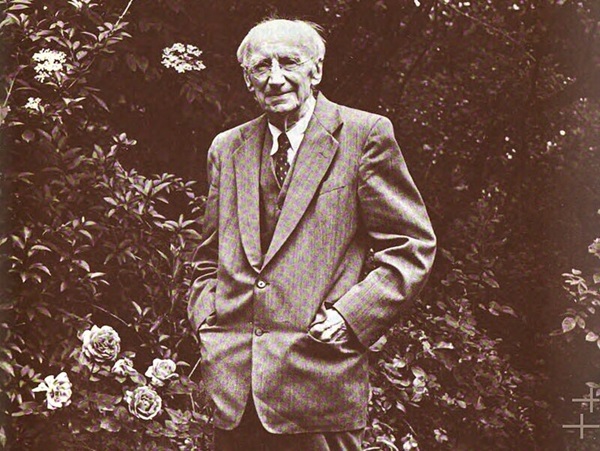We’ve all heard the names John and Charles Wesley, but there are a lot of other important names in the history of Methodism you may not know. The Unsung Heroes of Methodism series tells the stories of lesser-known figures whose lives and witness still impact The United Methodist Church today, even if their names aren’t familiar to us.
Harry F. Ward was a Methodist pastor and one of the leading social activists of the Early 20th century. He helped found and lead the Methodist Federation for Social Action (MFSA), co-authored the Social Creed, and served as the first chairman of the American Civil Liberties Union (ACLU). Ward devoted his life to service and advocacy for the poor and defended the right of all people to free speech. Yet his legacy remains complicated.
Meet more heroes
Harry Frederick Ward was born outside London, England, in 1873. His father was a lay pastor in the Methodist Church of Great Britain. At 17, Ward left home and immigrated to the United States, settling in Utah, where he worked as a farmhand and driver until he saved enough money to attend the college. Ward graduated from Northwestern University in Evanston, Illinois in 1897 and pursued graduate studies in philosophy at Harvard University.[1]
While completing his education, Ward also served as a lay pastor in the Methodist Episcopal Church and was ordained in 1902. At Northwestern, Ward had witnessed the work of Christian social reformers such as Jane Addams, who ministered to the city’s poor. Inspired by their example, he directed his congregation to provide aid and services to those in need while also advocating for social justice through his sermons and public speaking.[2]
In 1907, Ward joined fellow Methodist clergy Worth Tippy, Herbert Welch and Frank Mason North to found the Methodist Federation for Social Service (later renamed the Methodist Federation for Social Action). The organization served as a caucus of clergy and laity within the Methodist Episcopal Church, promoting social equality and the needs of the poor.[3]
Timeline of Harry F. Ward's Life
1873 – Born near London, England.1890 – Immigrates to the United States at age 17; works in Utah.
1897 – Graduates from Northwestern University after studying under George Albert Coe.
1898 – Begins pastoring Wabash Avenue Methodist Episcopal Church in Chicago.
1902 – Ordained as an elder in the Methodist Episcopal Church.
1907 – Helps found the Methodist Federation for Social Service (later MFSA).
1908 – Co-authors the Methodist Social Creed, adopted by General Conference.
1911–1944 – Serves as general secretary of the MFSA.
1920–1940 – Founding member and first chairman of the ACLU.
1928 – Publishes an article supporting eugenics.
1940 – Resigns from the ACLU after it bars communists from leadership.
1940s–1950s – Branded a communist sympathizer during McCarthy era; defends civil liberties.
1963 – Signs letter to President Kennedy calling the removal of American forces from Vietnam.
1966 – Dies at age 93; remembered as a social reformer and educator.
2016 – The United Methodist Church formally condemns eugenics, naming Ward among past supporters.
Ward was also one of the primary authors of the Methodist Social Creed, which the General Conference adopted in 1908. The Creed called for fairer treatment of workers by supporting child labor laws, shorter work hours, a living wage and protection from hazardous work conditions.[4] Today The United Methodist Church still follows a modified version of the Social Creed.
Ward taught at Boston University and later at Union Theological Seminary, where he trained generations of pastors and social advocates until his death in 1966. He was a founding member of the ACLU and served as its chairman from 1920 to 1940.[5]
Unlike many liberal Christian pastors of his era, Ward was willing to work alongside communists. He resigned from the ACLU in 1940 in protest of its decision to bar avowed communists from leadership roles. During the height of McCarthyism, Ward was branded a communist sympathizer by the House Un-American Activities Committee. Though he denied being a communist, he protested blacklists and other efforts to persecute people for their political beliefs.[6]
Ward’s deep compassion for the poor and commitment to social equality make his advocacy of eugenics all the more troubling.
Ward never recanted his support for eugenics or acknowledged how it conflicted with the teachings of Christ. In 2016, the General Conference of The United Methodist Church adopted a resolution condemning eugenics and repenting for past support of the movement by church leaders, including Ward.[8]
Among Ward’s final acts was adding a name to an open letter to President John F. Kennedy calling for the removal of American forces from Vietnam in 1963.[9] Harry F. Ward died in 1966 at the age of 93.[10] His legacy endures through the MFSA he helped found, the Social Creed he co-authored and the work of countless social advocates he taught or inspired.
[1] “Harry Frederick Ward Papers, 1880 – 1979.” New York: The Burke Library Archives Union Theological Seminary.
[2] Idem.
[3] Russell, Richey E. and Rowe, Kenneth E. The Methodist Experience in America: A History Volume 1. Nashville: Abingdon Press, 2010.
[4] Idem.
[5] “Harry Frederick Ward Papers, 1880 – 1979.” New York: The Burke Library Archives Union Theological Seminary.
[6] Idem.
[7] “Is Christian Morality Harmful, Over-Charitable to the Unfit?” Ward. Harry F. Eugenics Magazine (December 1928).
[8] “Repentance for Support of Eugenics 2016 Book of Resolutions, #3184.” Nashville: The United Methodist Publishing House, 2016.
[9] "Harry Ward Dies; LED A.C.L.U. TO '40; Methodist Minister, 93, Way Long a Foe of War". The New York Times. 10 December 1966. p. 37.
[10] “Harry Frederick Ward Papers, 1880 – 1979.” New York: The Burke Library Archives Union Theological Seminary.





